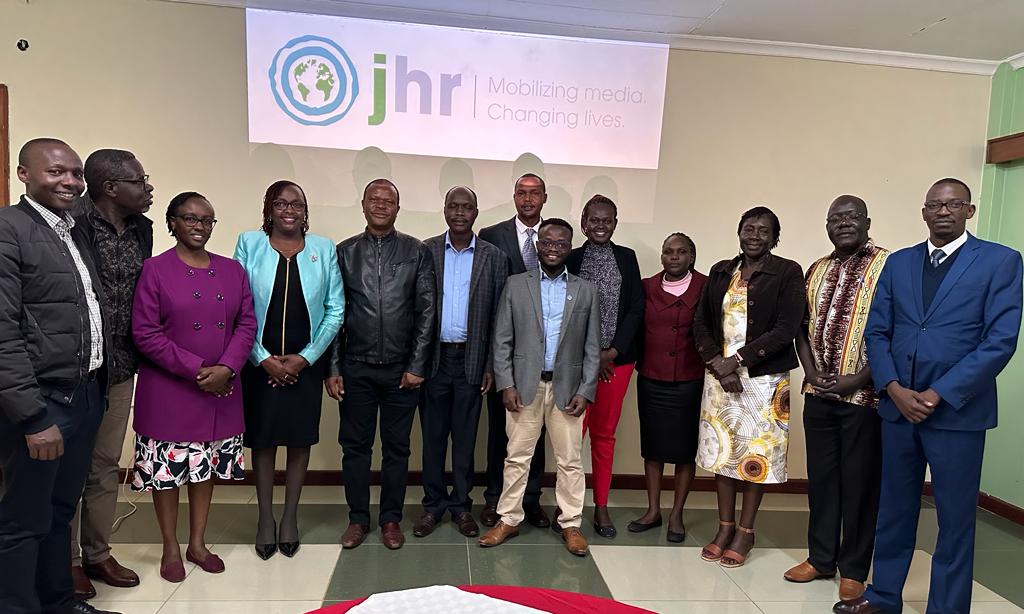Journalists for Human Rights Canada World, Voice for Women and Girls’ Rights program in Kenya has concluded its first Training of Trainers workshop to enhance the capacity of lecturers to teach human rights journalism. This effort is geared towards implementing a Human Rights Journalism curriculum developed by JHR.
The curriculum, developed in the last two years, is designed to inform and educate media and journalism students on the fundamental elements of human rights to ensure that they report ethically and professionally on human rights issues. JHR is working with Moi University-Eldoret, Maseno University-Kisumu, Masai Mara University-Narok, and the Technical University of Mombasa to implement the curriculum in their respective curricula and courses.
To build the capacity of lecturers to integrate the curriculum in their teaching, JHR-Kenya is rolling out a Training of Trainers (ToT) workshops for the signed-up institutions, with the first one held in Eldoret, which brought together 11 lecturers from Moi University’s Department of Publishing, Journalism and Communication Studies.
During the two-day engagement, Professor Nancy Booker, author and the lead facilitator, emphasized the need for institutions of higher learning to transform their models of teaching to align with the market needs, adding that journalism is dynamic, looking at emerging issues such as the need for data journalism and human rights journalism in every-day reporting.
“Journalists must be prepared to cover human rights issues competently and accurately. That preparation should be done through training and education,” Prof Booker highlighted.
School of Information Science Dean Dr. Abraham Mulwo reiterated the need for lecturers to stay abreast with new trends in journalism to produce marketable and competitive journalists, aware of their capability to practice transformative journalism. He added that it is essential for journalism students to take up specialized reporting, such as human rights journalism, to enable them to produce accurate and informed reporting.
The curriculum focuses on Fundamentals of Human Rights, Rights-Based Reporting; Health, Safety and Protection of Journalists, Ethics and Human Rights Reporting; and Gender and Human Rights Reporting.
The human rights journalism curriculum development is at the core of the Journalists for Human Rights (JHR) approach to media development. While JHR primarily works with practicing journalists to provide peer-to-peer knowledge sharing, it is equally important to nurture the interest and passion of journalism and communication students before they enter the media industry.
“This curriculum aims to institutionalize human rights reporting and ensure that future journalists are human rights conscious. We hope that students trained using the following curriculum would contribute to changing the Kenyan media sector’s culture regarding human rights reporting,” said Mustapha Dumbuya, East Africa Regional Team Lead at Journalists for Human Rights.



